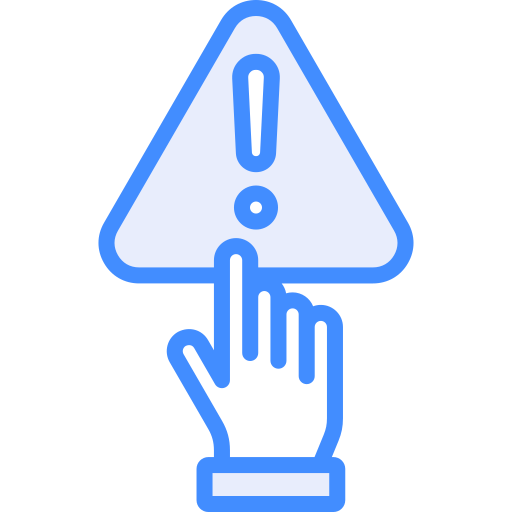Payday Lenders in Connecticut
Payday Loan Laws

Loan Terms and Conditions
prohibited
Whenever you need emergency financing, you can get loans online from a legit lending companies. Check your rates and terms before applying for cash advance online.
History of Connecticut Payday Loans
State Resources

How to file a complaint
- ADDRESS
- 260 Constitution Plaza, Hartford, CT 06103
- 860-240-8170
- Website
Connecticut Loan Debt Relief
How to Get out of Loan Debt?
Types of Quick Loans in Connecticut
Alternatives to Payday Loans in Connecticut
Personal Loans
In Connecticut, personal loans serve as a versatile financial tool that allows borrowers to secure funds for various purposes without the need for collateral. With a fixed repayment schedule, personal loans provide an attractive option for individuals seeking a lump sum of cash upfront while maintaining a structured repayment plan. The average interest rate for personal loans in Connecticut stands at 10-12%, making them an appealing choice for borrowers seeking financial flexibility and convenience.
Construction Loans
When it comes to construction projects and major renovations in Connecticut, construction loans offer a practical financing solution. These short-term loans are designed to support the costs associated with new construction or substantial home improvements. Construction loans in Connecticut typically require a minimum down payment of 20% and are based on the appraised value of the property upon project completion. It is essential for borrowers to meticulously plan their projects and ensure timely repayment, as construction loans operate on a lump sum repayment model once the project is finished. By leveraging construction loans, residents of Connecticut can embark on their desired home transformation endeavors with confidence.
Home Equity Loans
Connecticut homeowners can tap into the equity they've accumulated in their properties through home equity loans. These loans provide an opportunity to borrow against the appraised value of a home, making them ideal for financing home improvements, debt consolidation, or significant expenses. With favorable interest rates compared to many other loan options, home equity loans in Connecticut serve as an attractive choice due to their secured nature. Homeowners can borrow up to 80% of their home's value minus any outstanding mortgage balance.
Bad Credit Loans in Connecticut
For individuals with less-than-perfect credit scores, bad credit loans provide a lifeline in accessing funds during times of need. In Connecticut, these loans are specifically designed to cater to those with poor credit, offering a viable option when traditional loans may not be accessible. Although bad credit loans may come with higher interest rates and fees, they serve as a valuable resource for individuals facing financial challenges and requiring immediate cash. By understanding the terms and conditions associated with bad credit loans, borrowers can make informed decisions and secure the necessary funds to address their financial obligations.
Connecticut Small Business Loans
Small business loan options in Connecticut:
- SBA loans: The SBA offers a variety of loan programs, including 7(a) loans, 504 loans, and microloans, to help small businesses access funding for things like, such as working capital, equipment purchases, and real estate investments.
- Connecticut Development Authority (CDA) Loans: The CDA offers a range of loan programs designed to support small businesses in Connecticut. These programs include the Small Business Express Program, which provides loans and grants for job creation, capital investments, and working capital needs.
- Community Economic Development Fund (CEDF): CEDF is a nonprofit organization that provides loans and business advisory services to small businesses in Connecticut. They focus on assisting businesses that may have difficulty accessing traditional financing.
- Business Lines of Credit: Offer a revolving credit facility, allowing businesses to access funds as needed. They provide flexibility and can be used for short-term working capital, inventory management, or other operational expenses.
- Microloans: Microloans are small loans typically ranging from a few thousand dollars to $50,000. They are offered by nonprofit organizations and lenders who focus on supporting small businesses and startups.
VA loans in Connecticut
Connecticut residents who are eligible veterans, active-duty service members, or their spouses have the opportunity to obtain VA loans to facilitate home purchases. These unique mortgage loans are backed by the Department of Veterans Affairs (VA), providing lenders with protection against losses in the event of borrower default. VA loans offer a range of benefits that distinguish them from traditional mortgages, including lower interest rates, zero down payment requirements, and the absence of private mortgage insurance (PMI). To qualify for a VA loan in Connecticut, borrowers must meet specific eligibility criteria, including minimum credit score and service requirements.
Connecticut Student Loans
Many options are available to Connecticut students to help finance their college education. These options include:
- Federal Student Loans: Low-interest loans backed by the federal government that can be used to pay for education expenses.
- Connecticut Higher Education Supplemental Loan Authority (CHESLA): CHESLA offers low-interest loans to Connecticut residents attending eligible in-state or out-of-state colleges and universities. These loans are available for both undergraduate and graduate students.
- Connecticut Aid for Public College Students (CAPCS): CAPCS provides need-based grants and low-interest loans to Connecticut residents attending public colleges in the state. The program aims to make college more affordable for Connecticut students and their families.
- Private Student Loans: Loans offered by private lenders that can be used to pay for education expenses, with interest rates and terms that can vary widely.
Connecticut Income Information
United States Census Bureau. “Poverty in the United States: 2021.” Accessed on May 12, 2023.
United States Census Bureau. U.S. Census Bureau QuickFacts: Connecticut. Accessed on May 12, 2023.
Connecticut Payday Lender Complaints
| Company Name | Count |
| LDF Holdings, LLC | 5 |
| MoneyLion Inc. | 3 |
| CASHCALL, INC. | 3 |
| Green Trust Cash, LLC | 2 |
| ENOVA INTERNATIONAL, INC. | 1 |
| Populus Financial Group, Inc. (F/K/A Ace Cash Express) | 1 |
| Total Complaints | 52 |
Consumer Financial Protection Bureau. Consumer Complaint Database. Accessed on May 12, 2023.
Most Common Issues
| Complaint type | Count |
| Charged Unexpected fees or interest | 25 |
| Can’t stop withdrawals from account | 7 |
| Received a loan didn’t apply for | 6 |
| Payment not credited to account | 4 |
| Struggling to pay loan | 3 |
What are the main reasons Americans apply for payday cash advance online or offline
Payday loans are typically used for nonnegotiable everyday expenses like your rent, utilities, and groceries. Per data reported by Pewtrust, the percentage of reasons described below
| Reason | Share |
| Regular Expenses (Utilities, car payment) | 53% |
| Unexpected emergency/expense | 16% |
| Rent/Mortgage | 10% |
| Something Special | 8% |
| Other | 5% |
| Did not answer | 2% |
Payday Lenders by City
- Bridgeport
- Stamford
- New Haven
- Hartford
- Waterbury
- Norwalk
- Danbury
- New Britain
- West Hartford
- Greenwich
- Fairfield
- Hamden
- Meriden
- Bristol
- Manchester
- West Haven
- Stratford
- Milford
- East Hartford
- Middletown
- Wallingford
- Southington
- Enfield
- Shelton
- Norwich
- Groton
- Trumbull
- Torrington
- Glastonbury
- Naugatuck


